
If you are considering the purchase of a vacant stand, it is essential to undertake thorough research beforehand. While many view property ownership as a sound investment, not everyone has the financial resources to enter the market by purchasing a starter home. In the past, it was fairly common for those unable to afford a home upfront to acquire a piece of land, gradually pay off the costs, and when their financial situation improved, begin building their dream home.
Key Takeaways
- Significant Cash Reserves Are Necessary: When purchasing vacant land in South Africa, having a substantial amount of cash available is crucial, as many banks require large upfront payments due to the higher risk associated with undeveloped properties.
- Consider Additional Costs: Beyond the purchase price, buyers must account for other expenses, including maintenance, municipal fees, building permits, and land surveys, which contribute to the overall cost.
- Land Financing Complexity: Securing financing for vacant land differs from conventional home loans, often involving higher interest rates and stricter requirements, especially for undeveloped or partially developed land.
About Arcadia Finance
Simplify your loan journey with Arcadia Finance. No application fees, plus access to 19 trusted lenders fully aligned with the standards of South Africa’s National Credit Regulator. Get reliable, tailored financial solutions quickly and easily.
Sale of Vacant Land
The sale of vacant land across many regions in South Africa has seen a noticeable decline, primarily due to an increasing number of existing properties being offered at reduced prices. This trend is expected to persist for some time as more prospective buyers focus on developed properties. However, for investors, this situation presents a valuable opportunity to purchase land, particularly in areas beginning to show renewed interest and development potential. Many current landowners, having purchased land at inflated prices during the recession, are now facing financial difficulties due to poor market timing.
As a result, many of these owners are keen to offload their properties, often willing to sell at significantly discounted prices to expedite the process. The extent of these discounts varies greatly depending on the region. Some areas continue to maintain high land values, and these are unlikely to decrease in the near future. Conversely, numerous locations hit hardest by the economic downturn offer vacant land at exceptionally low prices, making it an attractive prospect for savvy investors.
For those planning to purchase land for residential or agricultural purposes, the South African Government provides essential information on land acquisition and use.
If you’re exploring the option of buying land instead of a home, understanding the credit requirements for loans is key. Read our guide on the Minimum Credit Score to Buy a House in South Africa to see how your score impacts your financing options.
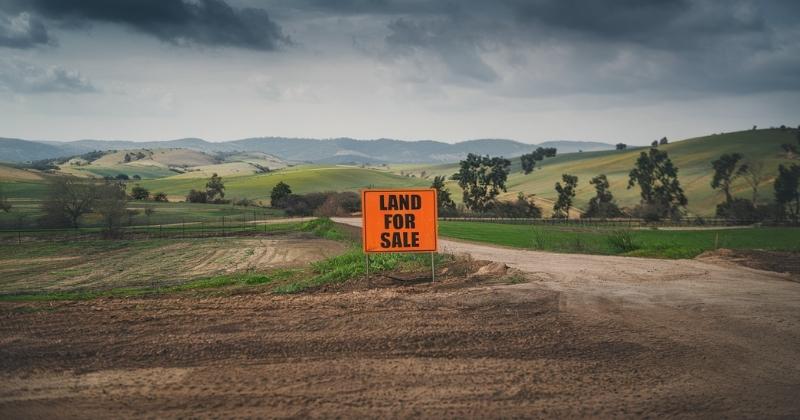
Guidelines for Purchasing Vacant Land in South Africa

Ensure You Have Significant Cash Reserves
When purchasing vacant land in South Africa, it is highly recommended to have a significant amount of cash readily available. Many major banks and financial institutions typically require either the full purchase price or a considerable portion of the overall cost to be paid upfront. This is because financing vacant land is generally perceived as a higher risk for lenders compared to financing developed properties, which already hold tangible value.
However, it’s worth noting that vacant land usually comes at a lower purchase price than fully developed properties. If you succeed in securing a bond for the land, you may have the opportunity to repay it more swiftly, resulting in a reduction of the overall interest paid throughout the loan term.
Proving your income is a key step in the land-purchasing process. Understanding what counts as valid proof of income can streamline your buying experience.
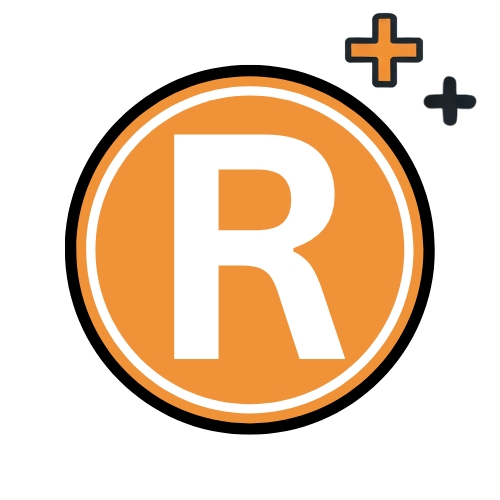
Be Aware of Additional Expenses
When purchasing vacant land, it is essential to consider all additional costs that come with the purchase beyond just the initial price of the land itself. These costs can include ongoing upkeep and maintenance of the property to keep it in acceptable condition, expenses involved in obtaining a building permit, and any fees related to land surveys to determine boundaries or suitability for construction. You may also need to account for storage requirements for building materials or equipment and the payment of ongoing municipal fees, such as rates and sewerage. All these factors can significantly increase the overall financial commitment needed for the project.
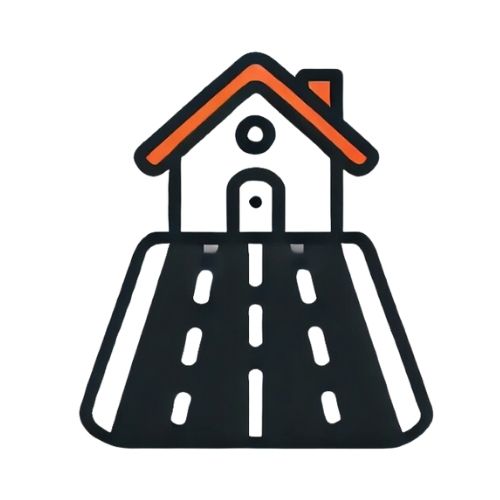
Determine the Purpose of the Property Before Purchasing
If you are considering acquiring land to establish a logistics company, it is vital to prioritise securing a location that offers direct access to main roads and provides ample parking facilities. The land must be capable of meeting these essential operational requirements for your business to function efficiently.
You should also carefully evaluate any potential future developments in the surrounding area, as these will significantly impact the resale value of the property. Conducting thorough research on the local region before making any commitments will help you make a well-informed decision.
Always review the zoning regulations that govern the types of structures permitted on the land. Some areas may only allow residential buildings, while others may permit commercial developments. Understanding these restrictions beforehand will help prevent costly issues later on.
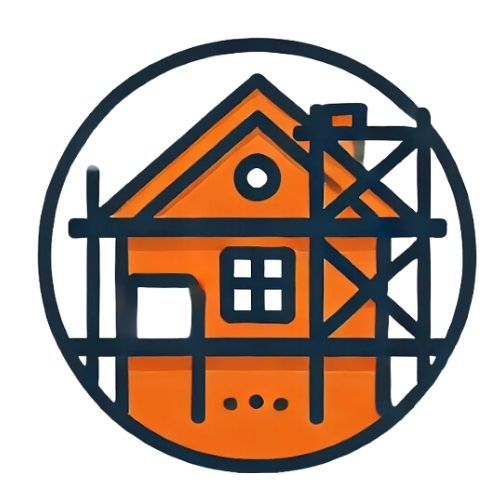
Investigate the Area and Land for Construction Purposes
Consider whether sewage, water, and electrical connections are already available. Is the land located in a well-established suburb? It is essential to conduct thorough research to understand the services that will be accessible to you.
You should also be aware of any building regulations and restrictions that may apply. Your title deed will specify how the property can be utilised and developed, outlining the rights, obligations, and privileges associated with owning the land. Amending any restrictions or suspensions on the property could be a complex and costly process.
If the property is within a specific estate, you may need to adhere to the rules set by a homeowners’ association. This could present obstacles regarding building requirements. Typically, there will be regulations dictating aspects such as the number of rooms, storeys, paint colours, and other specifications for the structure.
When purchasing land, investors should evaluate factors like zoning laws, infrastructure, and long-term appreciation potential. For a broader perspective on lucrative property ventures, explore Property Investment in South Africa and uncover the best opportunities in the market.
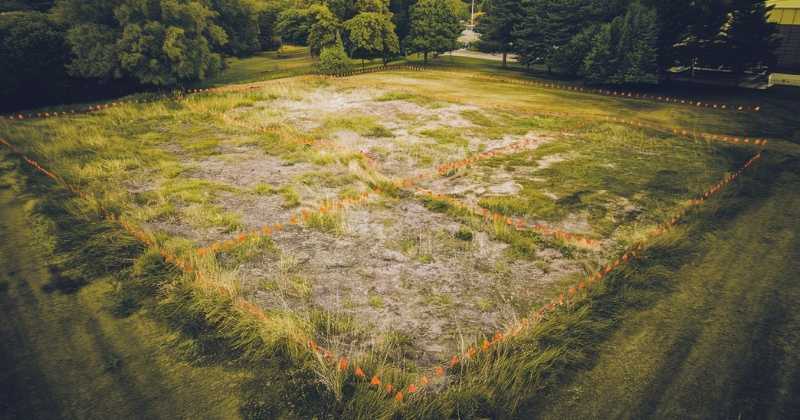
Costs Involved When Purchasing Vacant Land
The property market has experienced significant shifts, with the price of land decreasing sharply in some regions. However, many prospective homeowners have been startled to discover that building a new home can cost up to 34% more than purchasing an existing property. This unexpected financial impact has forced many to delay their plans, even if only temporarily.
It’s not just the construction expenses deterring potential buyers of vacant land. Despite the absence of any structures on the property, owners remain liable for rates, sewerage fees, and often refuse removal costs. While these charges are typically much lower than those for developed properties, they still represent ongoing expenses that must be factored into the budget.
Additionally, the land must be maintained to an acceptable standard, which includes keeping it clear of weeds and debris. Municipalities have become increasingly strict about compliance, and if an owner fails to address a notice to clear the land, the municipality will take action and bill the owner for the necessary maintenance.
Bridging finance can be a game-changer when you’ve found the perfect plot but need quick funds to secure it before your loan comes through.
Initial Purchase Costs
| Cost Type | Description | Estimated Amount |
|---|---|---|
| Purchase Price | Agreed amount for the land. | Varies based on location/size |
| Transfer Duty | Tax payable to SARS based on the land value. | Sliding scale (or exempt if < R1,100,000) |
| VAT (if applicable) | Charged by the seller if VAT-registered. | 15% of purchase price (if applicable) |
| Legal Fees | Conveyancer’s fee for transferring ownership. | ~R8,000 – R15,000+ |
| Bond Registration Costs | If financed with a bond, additional legal fees. | ~R6,000 – R10,000+ |
Ongoing Costs After Purchase
| Cost Type | Description | Estimated Amount |
|---|---|---|
| Municipal Rates & Taxes | Property tax based on land value. | Depends on municipality |
| Service Connections | Installation of water, electricity, or sewage. | ~R5,000 – R20,000+ |
| Levies (if applicable) | Fees for estate or community management. | Varies by estate |
| Insurance | Cover for the land (e.g., liability insurance). | ~R2,000 – R5,000 annually |
Additional Costs to Consider
| Cost Type | Description | Estimated Amount |
|---|---|---|
| Surveyor Fees | To confirm land boundaries or create a site plan. | ~R3,000 – R15,000+ |
| Environmental Assessments | Required if building on certain land types. | ~R5,000 – R25,000+ |
| Architectural & Planning Fees | Costs for developing construction plans. | ~R20,000 – R50,000+ |
| Rezoning Applications | If changing the land’s zoning (e.g., from agricultural). | ~R10,000 – R30,000+ |
| Registration Fees | Government registration for title deed or bond. | ~R1,000 – R2,500 |

Evaluate Your Loan Options
If you decide to finance the acquisition of land, it’s important to recognise that buying land typically involves greater complexities than purchasing a home. Land loans differ significantly from traditional home mortgages, often carrying higher costs. This is due to the increased risk financial institutions face when providing loans for undeveloped land, which does not offer the same immediate security as developed properties.
The terms and availability of loans can vary based on the specific type of land you intend to purchase. Generally, there are three main categories:
- Raw Land: This refers to completely undeveloped land that lacks essential infrastructure such as roads, electricity, or sewage systems. Due to the high risks associated with this type of property, lenders often require a substantial down payment and charge higher interest rates.
- Unimproved Land: While this type of land may have some basic amenities, it is still missing critical utilities like electricity and gas connections. Although unimproved land is less risky for lenders compared to raw land, loans for unimproved land may still demand larger down payments and feature higher interest rates.
- Improved Land: This land has already undergone some development, including access to roads, electricity, and water. Loans for improved land typically come with lower interest rates and more lenient down payment requirements, making them less costly than loans for raw or unimproved land.
The complexities of financial transactions require vigilance, especially when it involves significant investments like buying land. Our guide, “Loan Scams vs. Legitimate Lenders,” provides critical information on identifying reputable financial institutions and avoiding scams.
Acquiring a Bond
Banks have become increasingly cautious about approving bonds for vacant land, contributing to the usual expenses associated with land ownership. Even when financial institutions are willing to provide financing, they typically require substantial deposits, often around 30% of the purchase price.
The reasons for this hesitancy are varied, but a major concern is that vacant land is often considered an underperforming asset. In the case of a home loan, the bank has a tangible and immediate asset as security, which provides a level of protection. Should the borrower default, the bank can sell the home to recover a significant portion of its investment. In contrast, vacant land does not offer the same level of security, as it lacks the immediate resale value and liquidity of developed property, making it a riskier investment for the bank.
Conclusion
Purchasing vacant land in South Africa can provide unique opportunities but also presents several challenges. Ensuring you have the necessary cash reserves and managing additional expenses, such as maintenance and municipal fees, is crucial. Financing options for land differ significantly from home loans, often requiring larger down payments and carrying higher interest rates, particularly for undeveloped land.
Frequently Asked Questions
The primary costs of buying vacant land include the purchase price and a substantial deposit if financing is needed. Additionally, consider expenses for land maintenance, municipal fees, land surveys, and building permits. It’s essential to account for these costs upfront to avoid unexpected financial strain.
Most financial institutions in South Africa generally require a deposit of around 30% when financing vacant land. This requirement exists because financing undeveloped land carries a higher level of risk for lenders compared to fully developed properties. The absence of infrastructure and development on the land makes it a less secure investment, prompting financial institutions to mitigate their risk through larger deposit requirements.
Yes, there are three main types of land: raw land, unimproved land, and improved land. Raw land is completely undeveloped and carries the highest financing risks, often requiring larger down payments and higher interest rates. Improved land, which has some infrastructure in place, typically comes with more favourable financing terms.
In addition to the land purchase price, you’ll need to account for ongoing expenses such as maintenance costs, municipal rates, sewerage fees, and refuse removal charges. If you plan to build, consider storage needs and the costs of land surveys, along with legal fees for securing building permits.
Zoning regulations are crucial in determining how a piece of land can be utilised, whether for residential, commercial, or other purposes. Before making any purchase, it’s vital to conduct a thorough review of the applicable zoning laws to ensure the land can be developed according to your specific plans. Some areas may have strict restrictions in place, potentially limiting or prohibiting certain types of development.
Fast, uncomplicated, and trustworthy loan comparisons
At Arcadia Finance, you can compare loan offers from multiple lenders with no obligation and free of charge. Get a clear overview of your options and choose the best deal for you.
Fill out our form today to easily compare interest rates from 19 banks and find the right loan for you.


